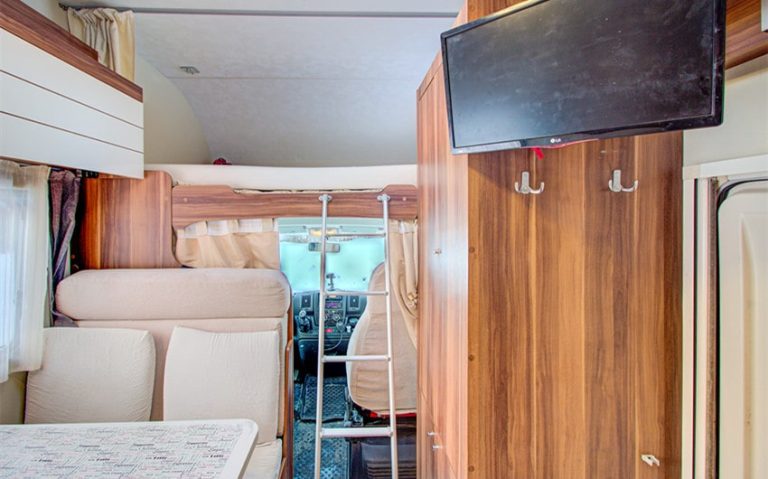Why You Should Never Move Without a Mini Emergency Fund: Even If You’re Doing Fine
Most people think moving is expensive because of obvious things—hiring a truck, renting a place, buying boxes. But those are just the basics. The real problems come from the surprise costs that pop up after you’ve packed. Even if your finances are stable and everything looks good on paper, unexpected expenses can quickly pile up and turn your move into a money mess. That’s why you should never move without a mini emergency fund, no matter how “fine” things seem right now.
Whether you’re relocating down the street or heading to a new place in Florida, moving brings risks that most people overlook. A mini emergency fund doesn’t just cover forgotten fees—it protects you from stress, debt, and bad decisions when the unexpected hits.
Hidden Moving Costs That Catch People Off Guard
You’ve probably budgeted for your moving truck, maybe paid your deposit, and bought some supplies. That’s a solid start, but it’s rarely enough. There are so many small charges that sneak in and blow your budget. You might need to pay to park the moving truck or cover the cost of disconnecting utilities. Then there are cleaning fees, key copies, replacing broken items, or buying new ones that don’t fit your new space.
As a matter of fact, things like elevator bookings or storage unit overages can appear at the worst times. If you’re renting, landlords may require last-minute repairs, or you might forget you have to steam clean the carpet. These aren’t always massive expenses on their own, but they add up fast. Besides, few people plan for these in their initial moving budget, so they hit harder than expected.
Why Your Credit Card Won’t Always Save You
A lot of people assume their credit card is enough to handle surprises. It’s fast and easy, so it feels like a decent backup plan. But relying only on credit is a gamble. In contrast to cash in a mini emergency fund, a card carries interest, and if you’re already close to the limit, you could run into trouble when you need it most.
Sometimes, movers or landlords prefer cash or debit. You might face processing delays or card issues. Worst case, your card gets flagged for fraud during the move because of location changes. Another key point—if you’re starting a new job, your first paycheck might not come in right away, which means you’ll be putting expenses on credit without a clear plan to pay them off.
Local Moves Can Be Just as Risky
It’s easy to assume that local moves are simpler and less risky. After all, you’re not shipping your stuff across the country. But short-distance moves can bring their own headaches, especially in big, high-traffic cities such as Miami. Things like limited parking, unexpected tolls, and strict apartment move-in windows can create chaos if you’re not ready.
A mini emergency fund is just as useful for local moves because city-specific issues often cost money to fix quickly. Need to rent a dolly at the last minute because your building has no elevator? That’s $40. Got hit with a fee because your moving truck blocked a fire lane? There’s another $150. Add in hot weather, sudden rain, and tight scheduling, and local moves can become more stressful than cross-country ones.
If you’re trying to reduce last-minute stress, lean into time and money-saving hacks like moving mid-week when traffic and building access is easier. Schedule utility transfers early and call ahead to check for hidden building fees. Even with these smart moves, don’t skip the emergency fund. It’s your best bet for staying cool when the heat—and pressure—rises.
Real-Life Emergencies Can Hit at the Worst Time
Moving already takes a toll on your time, energy, and money. But it’s also the moment when life tends to throw in some extra surprises. Maybe the moving company cancels last minute. Or you arrive to find that your apartment isn’t ready. A hotel stay, meals out, and a few days of delay can cost hundreds of dollars. Not to mention, car trouble or minor injuries during a move can lead to unexpected bills—medical or mechanical.
Even if everything goes smoothly, delays in utility setup or your paycheck can leave you short. And if you’re moving for a job, there’s a small chance the offer falls through or gets postponed. These things happen more often than you’d think. With this in mind, it’s smart to have cash set aside specifically for these kinds of problems. A mini emergency fund gives you options when you’re suddenly stuck.
How Much Should You Actually Save?
You don’t need to overdo it. A mini emergency fund is supposed to cover short-term problems, not long-term disasters. That said, the amount depends on your situation. A local move where you already have a job and support system might only need $500. But a cross-country move with a job change or a gap in income might require $1,000 to $1,500.
You can use a simple formula: Add 10–15% of your total move budget, then round up for peace of mind. That amount should go into a liquid account you can access immediately—no waiting for transfers or approvals. As an illustration, if your move costs $3,000, plan to save an extra $300 to $500 on top of that.
The Peace of Mind Is Worth It
Financial stress can ruin what should be a fresh start. Even if the actual move goes well, being low on cash in a new place makes everything feel harder. Simple decisions—buying groceries, replacing a lightbulb, calling a locksmith—can feel like huge burdens if your account is empty.
Besides, having a safety net helps you stay calm and think clearly. You’re less likely to make bad decisions just to get by. You’ll settle in faster and feel more in control of your environment. Another key point—if you’re moving with a partner or family, your stress spreads to them, too. A mini emergency fund doesn’t just support your wallet. It supports your emotional state.
Easy Ways to Build That Fund Before Moving Day
Saving money might feel impossible, especially with all the other costs of moving. But it doesn’t have to be painful. Start by setting a small weekly goal, even if it’s just $25. Sell off furniture, clothes, or gear you don’t want to bring. Cut back on eating out or subscriptions for a few months. You can use online calculators too.
Similarly, consider taking on a few side gigs. Deliver food, babysit, or offer local services—whatever fits your schedule. The idea is to build your fund slowly, without touching your main savings. Use a separate account or even a cash envelope to keep the money out of sight, so you’re less tempted to dip into it early.
Why You Should Never Move Without a Mini Emergency Fund
There’s no other way to say it: you should never move without a mini emergency fund. The risks of moving without any cash backup are simply too high. You don’t want to be stranded in a hotel lobby, or calling friends to borrow money when your landlord pushes back your move-in date.
In short, this isn’t about being negative—it’s about being ready. Most people only learn this lesson after something goes wrong. Don’t wait for that to happen. Set aside the money now so you don’t have to panic later.
Hence, think of your emergency fund as your safety net. It’s the thing that keeps you from falling hard when life hits you sideways during the move. A few hundred dollars today can save you from a mountain of regret later.
Summary
A mini emergency fund doesn’t seem urgent until it suddenly is. Moving is a big change, and even the best-laid plans can fall apart without warning. Having a financial buffer in place gives you more than just money—it gives you peace of mind, control, and options.
So whether you’re moving across town or across the country, do yourself a favor: never move without a mini emergency fund. It’s one of the smartest, simplest ways to protect your move, your finances, and your future.







